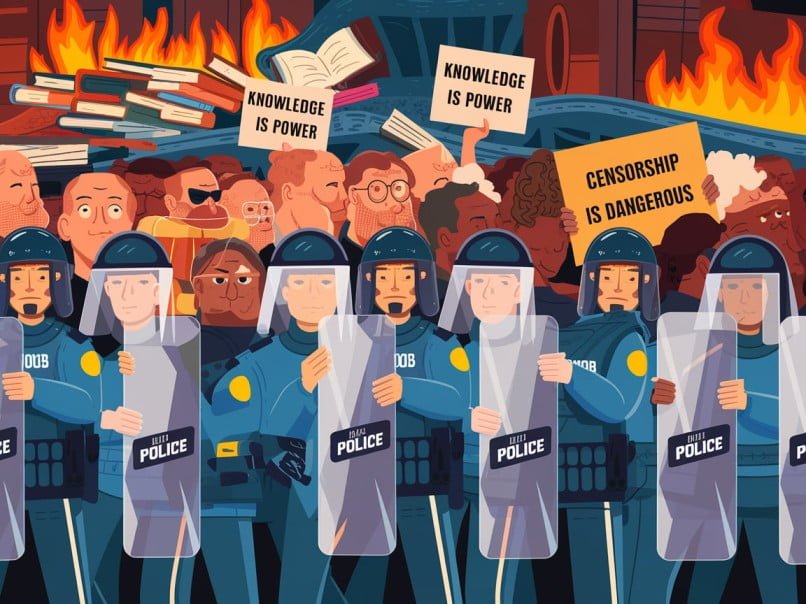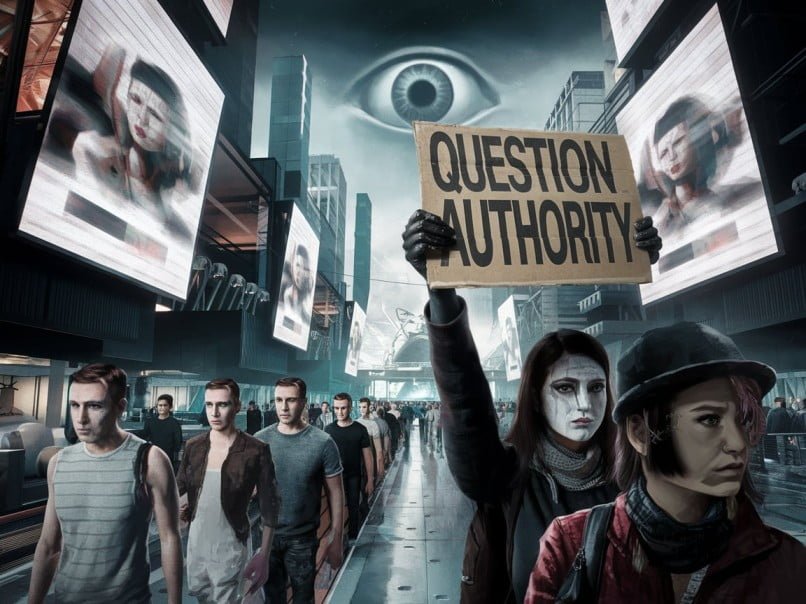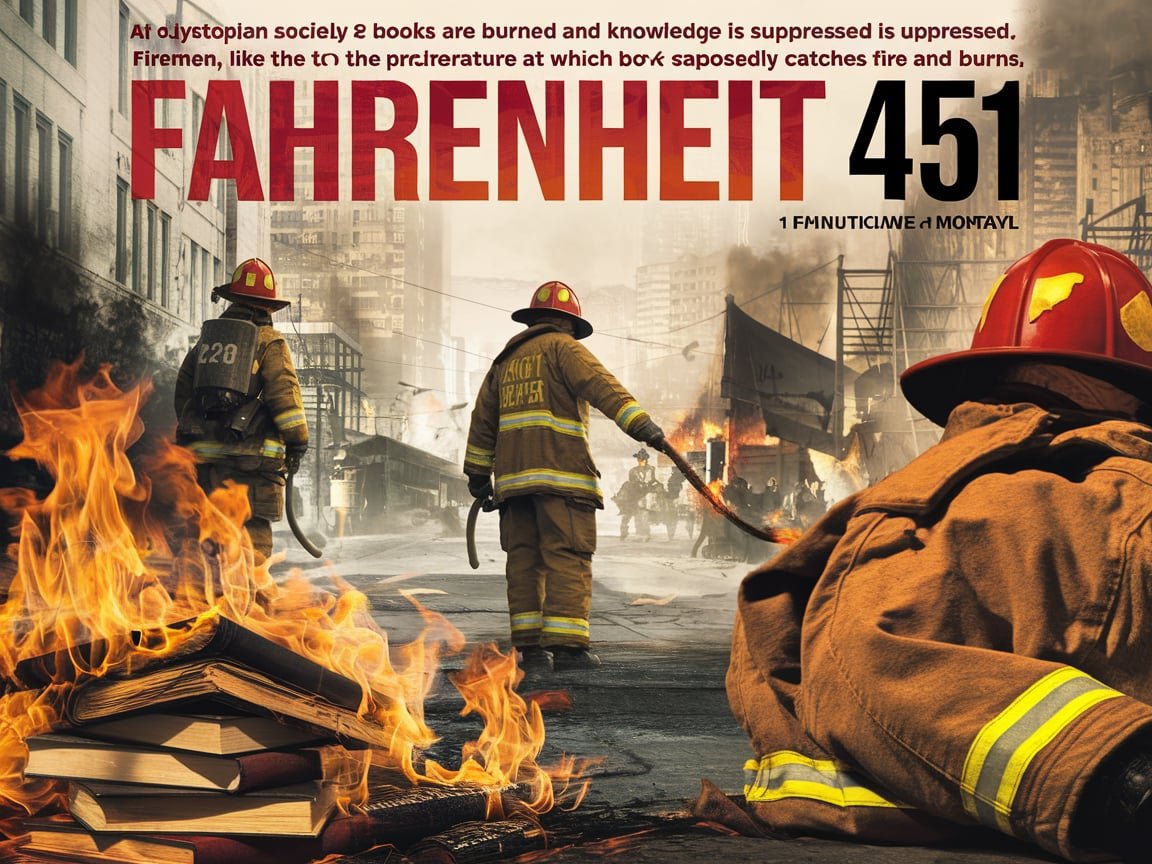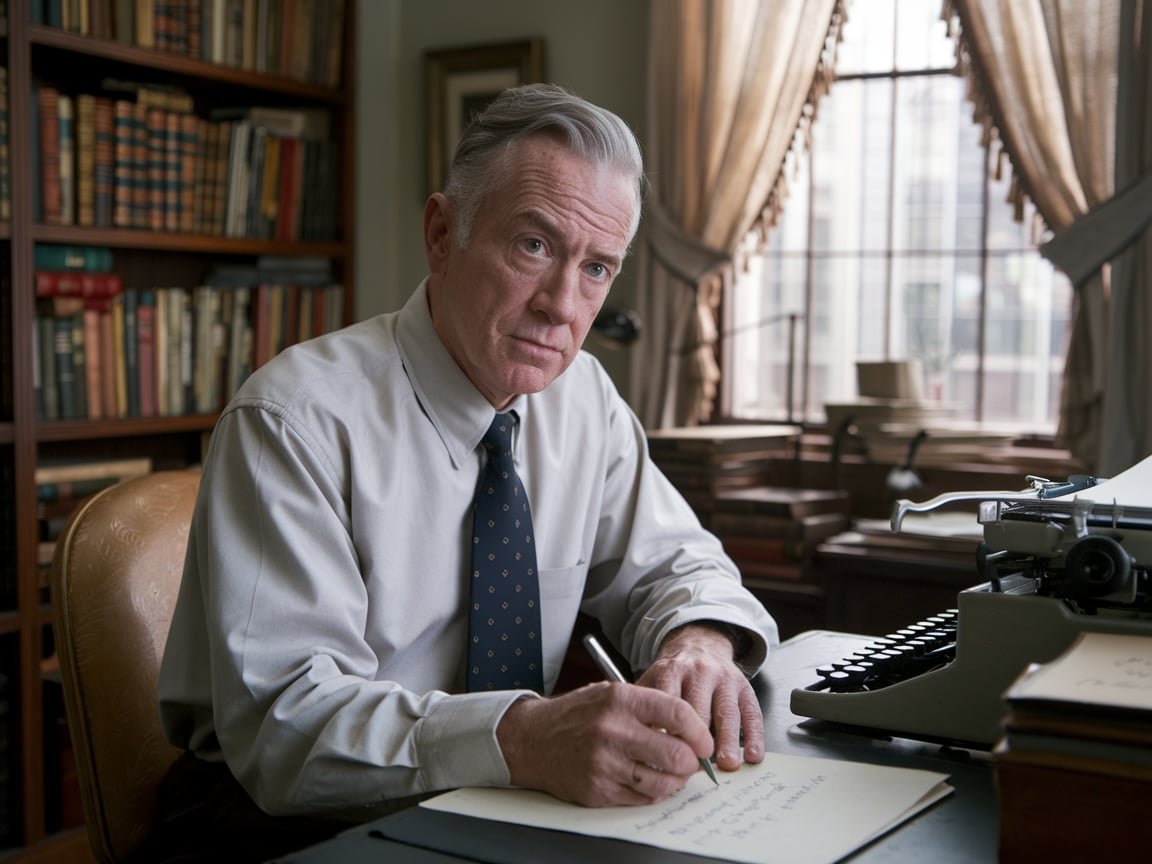Fahrenheit 451 stands as a seminal work in the canon of American literature. Written by Ray Bradbury and published in 1953, the novel paints a haunting picture of a future where books are outlawed, and “firemen” burn any that are found. Bradbury’s vision of a society where intellectualism is suppressed and critical thinking is stifled is as relevant today as it was when it was first published. This blog post will explore what Fahrenheit 451 is about, examine Ray Bradbury’s broader literary contributions, and provide guidance on where to purchase the book, whether through Amazon or at a specialty Fahrenheit bookstore.
Fahrenheit 451: What Is It About?
At its heart, Fahrenheit 451 is a novel about censorship and the perilous path of a society that willingly relinquishes its freedom of thought. The title refers to the temperature at which book paper supposedly catches fire and burns. The protagonist, Guy Montag, is a fireman, but not in the conventional sense. In this dystopian world, firemen are tasked with burning books, which are illegal because they are seen as dangerous vessels of dissenting ideas.
Montag’s journey begins when he meets Clarisse McClellan, a young woman full of curiosity and a love for life. Clarisse’s free-spirited nature and questioning attitude make Montag realize how empty his life has become. This encounter triggers a series of events that lead Montag to question the purpose of his existence and the society he serves.
As Montag becomes increasingly disillusioned with the world around him, he begins to secretly read the books he is supposed to destroy. This act of rebellion sets him on a collision course with the authorities and forces him to confront the very foundations of his society. Fahrenheit 451 explores themes of conformity, the loss of individuality, and the dehumanizing effects of technology.
Bradbury’s vision is one of a world where superficial entertainment replaces meaningful interactions and where people are discouraged from thinking critically. The novel’s dystopian setting serves as a warning against the dangers of censorship, the suppression of dissent, and the consequences of living in a society that values entertainment over enlightenment.

The Characters in Fahrenheit 451: A Deep Dive into the Minds Behind the Story
Understanding the characters in Fahrenheit 451 is crucial to grasping the novel’s full impact. Each character represents different aspects of the society Bradbury depicts and the various responses individuals might have to such a world.
Guy Montag: Montag is the protagonist of the story. At the beginning of the novel, he is a loyal fireman who takes pride in his work. However, his encounters with Clarisse McClellan, a free-spirited young woman, and his growing dissatisfaction with his empty life lead him to question everything he has ever known. Montag’s transformation from a conformist to a rebel is the heart of the novel, symbolizing the power of knowledge to change an individual.
Mildred Montag: Montag’s wife, Mildred, represents the epitome of the society Bradbury criticizes. She is obsessed with the shallow entertainment provided by the government, spending her days immersed in television and radio programs. Mildred is disconnected from reality, refusing to engage in meaningful conversations and indifferent to her husband’s growing unrest. Her character serves as a warning of the dangers of losing oneself in technology and entertainment.
Clarisse McClellan: Clarisse is a seventeen-year-old girl who opens Montag’s eyes to the world around him. Unlike the other characters in the novel, Clarisse is curious, thoughtful, and in tune with nature. She questions the world and encourages Montag to do the same. Clarisse represents the possibility of a different way of living, one that values individuality and critical thinking.
Captain Beatty: The fire chief and Montag’s boss, Captain Beatty, is one of the novel’s most complex characters. Despite being a fireman who burns books, Beatty is well-read and knowledgeable about literature. He uses his understanding of books to justify his work, arguing that the suppression of knowledge is necessary for societal stability. Beatty’s character highlights the internal conflict between knowledge and power, and his interactions with Montag serve as a catalyst for Montag’s rebellion.
Faber: A retired English professor, Faber becomes Montag’s mentor as he seeks to understand the importance of books. Faber represents the intellectual who has chosen to remain silent in the face of oppression, but who ultimately finds the courage to help Montag in his quest for knowledge. Faber’s character underscores the importance of standing up for one’s beliefs, even in the face of danger.
Through these characters, Bradbury explores different responses to the oppressive society depicted in Fahrenheit 451. Montag’s journey from ignorance to awareness is mirrored in the novel’s exploration of themes like censorship, conformity, and the power of literature.

The Role of Technology in Fahrenheit 451
One of the key aspects of Fahrenheit 451 is its critique of technology. In the world Bradbury created, technology is used not to empower individuals, but to control and pacify them. The society in Fahrenheit 451 is saturated with media that distracts and desensitizes people to the realities around them. Giant television screens dominate homes, bombarding citizens with mindless entertainment. The novel’s portrayal of technology raises important questions about how it shapes our perceptions and whether it can be a tool for enlightenment or a means of control.
Montag’s wife, Mildred, is a prime example of a citizen completely absorbed by this technology. She spends her days interacting with the “parlor walls,” enormous TV screens that broadcast interactive shows, and listening to the “Seashell Radio,” small devices inserted into the ears that provide a constant stream of noise. Mildred represents the average person in this dystopia—disconnected from reality and uninterested in anything that requires deep thought or introspection.
Bradbury’s vision was eerily prophetic in many ways. Today, we see how technology can both connect us and isolate us. Social media, streaming services, and the 24-hour news cycle have created a world where information is abundant, but meaningful engagement is rare. In Fahrenheit 451, Bradbury warns of a future where people are so inundated with trivial distractions that they become passive and complacent, losing their ability to think critically or challenge the status quo.

Censorship and the Power of Books
At the core of Fahrenheit 451 is the theme of censorship. The government’s decision to ban and burn books is a direct attack on the freedom of thought and expression. In the novel, books are seen as dangerous because they contain conflicting ideas and encourage people to think for themselves. This, in turn, could lead to dissent and unrest, something the government wants to avoid at all costs.
The burning of books is symbolic of the destruction of knowledge and culture. Montag’s gradual realization of the importance of books and the knowledge they contain is a key turning point in the novel. Through his journey, Bradbury illustrates the vital role that literature plays in preserving history, promoting empathy, and fostering critical thinking.
Montag’s transformation from a fireman who burns books to a fugitive who seeks to preserve them underscores the novel’s central message: that the suppression of ideas is a fundamental threat to freedom and humanity. Bradbury’s depiction of a society that censors and controls information is a stark reminder of the importance of protecting the freedom of expression.

Books by Ray Bradbury: Exploring His Legacy Beyond Fahrenheit 451
While Fahrenheit 451 is Ray Bradbury’s most renowned work, it is by no means his only contribution to literature. Bradbury was a prolific author who wrote across multiple genres, including science fiction, fantasy, horror, and mystery. His ability to craft stories that were both imaginative and deeply human made him one of the most influential writers of the 20th century.
The Martian Chronicles
Published in 1950, The Martian Chronicles is one of Bradbury’s most celebrated works. The book is a collection of loosely connected stories that depict the colonization of Mars by humans fleeing a troubled Earth. Through these stories, Bradbury explores themes of colonization, environmental destruction, and the clash of cultures. The Martian Chronicles is a powerful commentary on the consequences of human expansion and the loss of innocence that often accompanies it.
Something Wicked This Way Comes
In Something Wicked This Way Comes (1962), Bradbury ventures into the realm of dark fantasy. The novel tells the story of two boys, Jim Nightshade and Will Halloway, who encounter a sinister carnival that arrives in their small town. The carnival, run by the mysterious Mr. Dark, preys on the fears and desires of the townspeople, offering them their deepest wishes at a terrible cost. The novel explores themes of good and evil, the passage of time, and the loss of childhood innocence. Something Wicked This Way Comes is a haunting tale that showcases Bradbury’s ability to blend fantasy with psychological horror.
Dandelion Wine
Dandelion Wine (1957) is a departure from Bradbury’s usual science fiction and fantasy themes. The novel is a semi-autobiographical coming-of-age story set in the summer of 1928 in the fictional town of Green Town, Illinois. The book captures the joys and sorrows of childhood and the passage of time. Through the eyes of the protagonist, Douglas Spaulding, Bradbury reflects on the beauty of everyday life and the bittersweet nature of growing up. Dandelion Wine is a nostalgic and poetic work that highlights Bradbury’s versatility as a writer.

Where to Buy Fahrenheit 451: Amazon and Other Options
If you’re looking to add Fahrenheit 451 to your collection, Amazon is one of the most accessible platforms. The site offers a wide range of editions, from affordable paperbacks to beautifully bound hardcovers. Additionally, Kindle users can easily download a digital version of the book, making it convenient for on-the-go reading. By searching for “F
ahrenheit 451 book Amazon,” you can find various options tailored to your preferences, whether you’re seeking a collector’s edition or a budget-friendly version.
Exploring Amazon’s Selection
Amazon’s vast selection of Fahrenheit 451 editions includes not only standard copies but also special editions that appeal to collectors and avid fans. For example, you might find anniversary editions that feature forewords by notable authors, as well as illustrated editions that bring the novel’s dystopian world to life. Kindle editions offer the convenience of reading on multiple devices, and many of these versions are priced affordably, often with additional features like adjustable text size and built-in dictionaries.
Furthermore, Amazon frequently offers discounts and promotions on books, so it’s worth checking the site periodically for deals on Fahrenheit 451. Prime members can also enjoy benefits like free two-day shipping, which makes Amazon a convenient option for purchasing this classic novel.
Supporting Independent Bookstores
While Amazon offers convenience and variety, independent bookstores provide a unique experience that many book lovers cherish. Visiting a local bookstore allows you to browse shelves, discover new authors, and even engage in conversations with knowledgeable staff who can recommend similar books. Some independent bookstores may carry special editions of Fahrenheit 451 or host events related to Ray Bradbury’s work, such as readings or discussions.
If you’re interested in supporting small businesses, many independent bookstores have online shops where you can purchase Fahrenheit 451 directly from them. Websites like Bookshop.org also allow you to buy books online while supporting local bookstores, giving you the best of both worlds: the convenience of online shopping and the satisfaction of supporting independent retailers.
Specialty Fahrenheit Bookstores
In some cases, you might come across bookstores that specialize in science fiction and fantasy literature, where Fahrenheit 451 holds a prominent place on their shelves. These specialty bookstores often curate collections that include rare or signed copies of books by Ray Bradbury and other influential authors in the genre. Visiting these stores can be a treasure hunt for bibliophiles and a chance to connect with other fans of Bradbury’s work.
Using Fahrenheit 451 SparkNotes for Study and Analysis
For readers, students, and educators, Fahrenheit 451 SparkNotes offers an accessible way to delve deeper into the novel’s complex themes and characters. SparkNotes provides detailed chapter summaries that break down the plot and highlight key moments in the story, making it easier to follow the narrative and understand the underlying messages.
Analyzing Themes with SparkNotes
One of the most valuable aspects of Fahrenheit 451 SparkNotes is the in-depth analysis of the novel’s major themes. The guide explores how Bradbury addresses censorship, the dangers of conformity, and the role of technology in society. It also provides insights into the symbolism used throughout the novel, such as the significance of fire, the Mechanical Hound, and the Phoenix. These analyses help readers grasp the broader implications of the story and see how Fahrenheit 451 reflects concerns that remain relevant in today’s world.
For students writing essays or preparing for exams, SparkNotes offers sample essay questions and answers, as well as a section on key quotes from the novel. These resources can be incredibly helpful for developing a deeper understanding of the text and crafting well-supported arguments.

Character Analysis and Development
Understanding the characters in Fahrenheit 451 is crucial to fully appreciating the novel. SparkNotes provides detailed character analyses, exploring the motivations, conflicts, and growth of key figures like Guy Montag, Mildred Montag, and Captain Beatty. By examining these characters in depth, readers can better understand how each one embodies different aspects of the society Bradbury depicts, and how their interactions drive the plot forward.
For example, Guy Montag’s transformation from a complacent fireman to a rebellious seeker of knowledge is central to the novel’s narrative. SparkNotes traces this character arc, highlighting key moments that contribute to Montag’s awakening and eventual rebellion against the oppressive regime. Similarly, the guide explores the role of Captain Beatty as both a mentor and antagonist, whose knowledge of literature is paradoxically used to justify its destruction.





